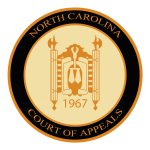This week’s opinions from the North Carolina Court of Appeals contained three cases involving community associations. That’s about a record, and further evidence of the growing trend in terms of the number of reported HOA/condo appellate cases.
One case, Kimler vs. The Crossings at Sugar Hill Property Owner’s Association, Inc. (August 2, 2016), involves the process for amending a declaration in a homeowners association created prior to 1999. While the case doesn’t provide groundbreaking new law, it does support a position HOA attorneys have argued for several years.
In short, the Crossings at Sugar Hill (the “Association”) was created as a planned community in the 1990s. That’s prior to the adoption of the N.C. Planned Community Act that became effective January 1, 1999. The Court of Appeals decision notes that the Declaration for the Association provides that the developer could amend the Declaration at any time, but that there was no “provision conferring on the Sugar Hill HOA the authority to amend the Declaration.” What if now, years later, the members of the Association wish to amend the Declaration?
The Planned Community Act in N.C.G.S. § 47F-2-117 provides as follows:
Except in cases of amendments that may be executed by a declarant under the terms of the declaration . . . . , the declaration may be amended only by affirmative vote or written agreement signed by lot owners of lots to which at least sixty-seven percent (67%) of the votes in the Association are allocated, or any larger majority the declaration specifies or by the declarant if necessary for the exercise of any declarant right.
Originally, this language in the Planned Community Act only applied to planned communities subject to the Act created on or after January 1, 1999. However, over the years and through different amendments to the statute, this specific section has been made retroactive to apply to all associations whenever created.
In January 2012 and with 71% of lot-owner approval, the Sugar Hill HOA passed an amendment pertaining to payment of assessments by owners of contiguous lots who purchased their contiguous lots directly from the developer. Some owners argued the amendment was invalid in that (1) association members did not have authority to amend the Declaration and (2) the amendment was unreasonable. Without getting into the weeds here, the Court of Appeals held that “an owners’ association may amend the declaration by a sixty-seven percent (67%) vote and a declarant may amend the declaration necessary to exercise a development right.” In other words, the statute allowing owners to amend a declaration does apply to older pre-1999 associations so long as the declaration or articles of incorporation don’t expressly provide that owners have no such right to amend. (The Court then noted that a pre-1999 association, by adopting the Planned Community Act, could even override such a prohibition.) The Court also looked at the reasonableness of the amendment based on prior North Carolina case law and held this specific amendment to be reasonable. This case is a win for homeowners in that it shows that members of an association should have authority to amend a declaration, even if the documents don’t so clearly provide.
Again, these cases are always more complicated than can be explained in a short article, so the full opinion can be found at Kimler vs. The Crossings at Sugar Hill Property Owner’s Association, Inc.
If you have specific questions as to your community, give any of our community association attorneys a call.


